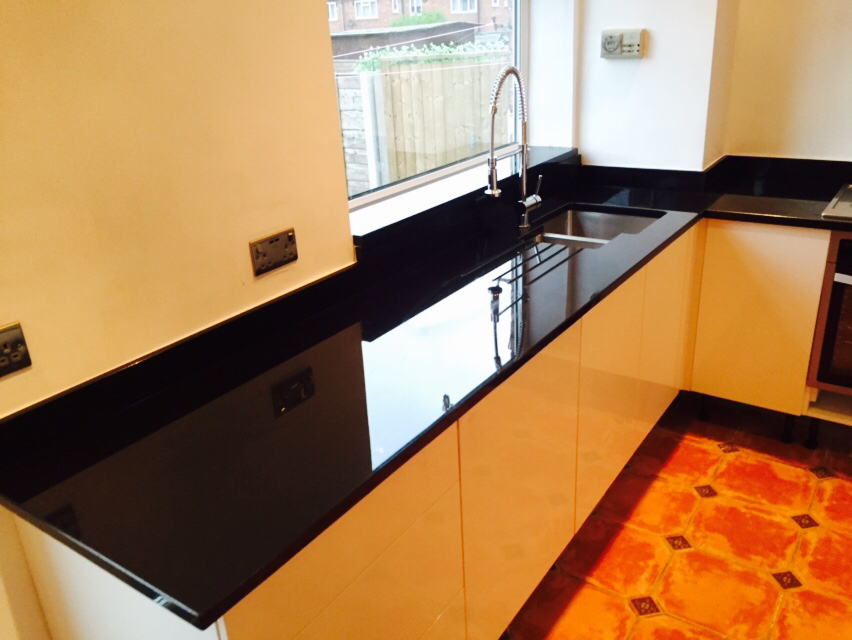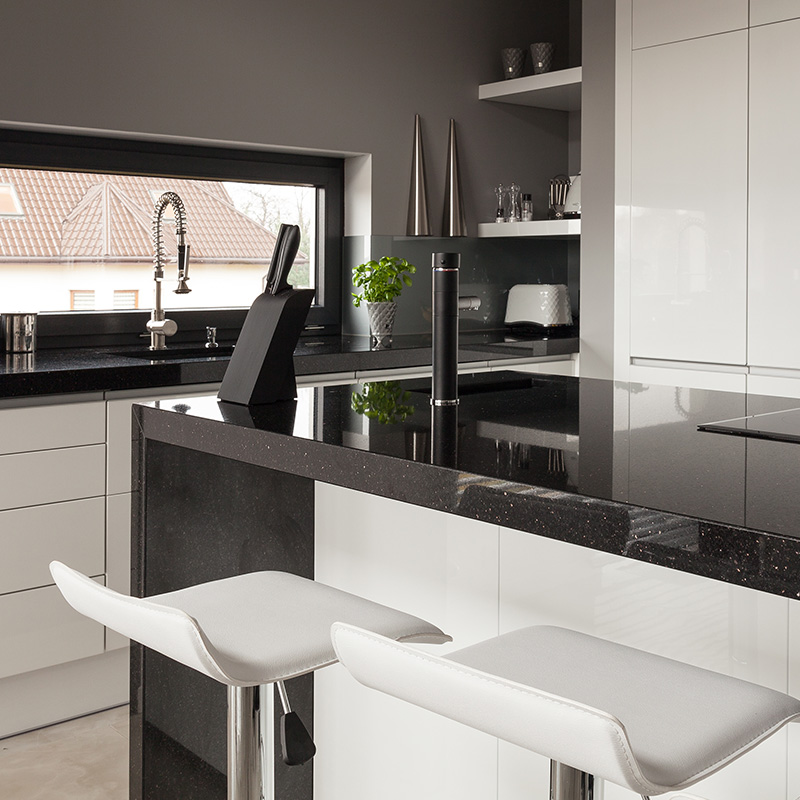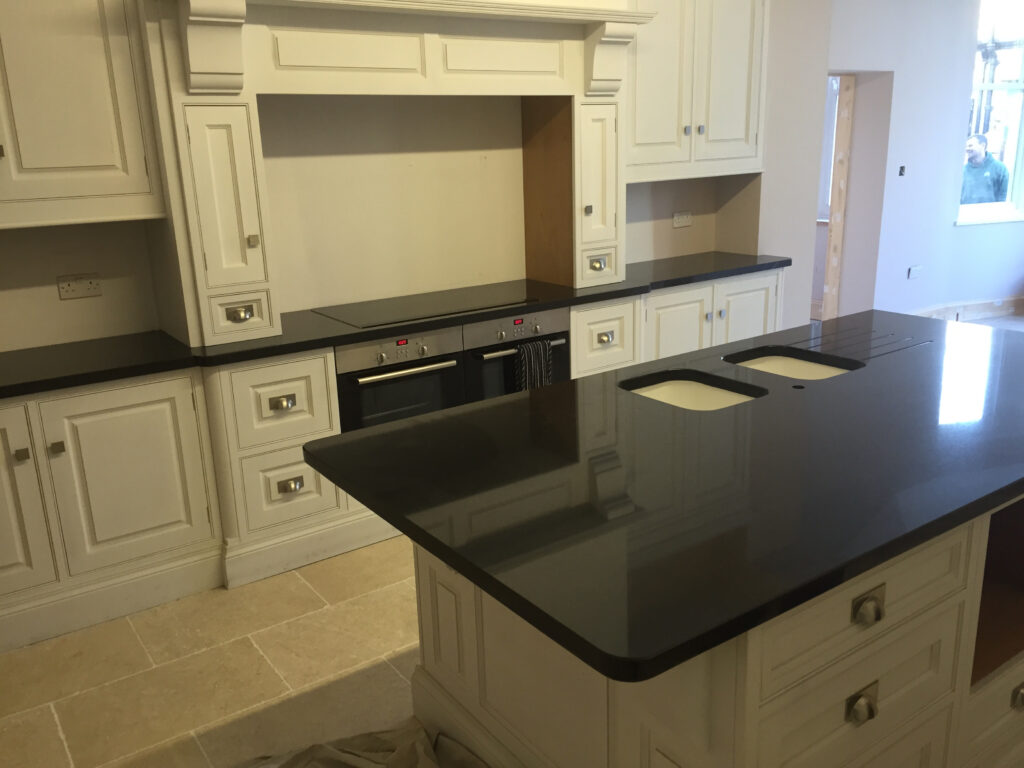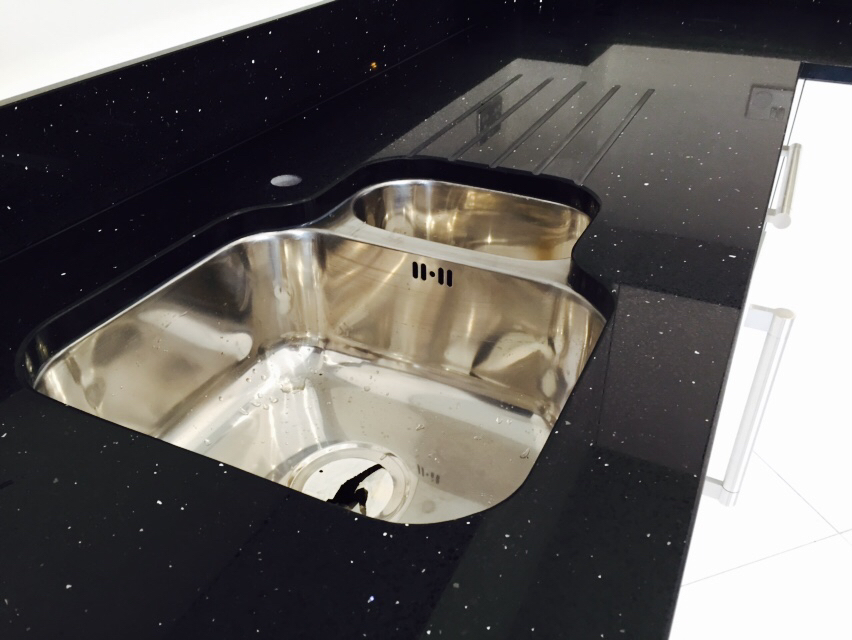Quartz is an engineered stone. It first gained popularity in the late 1980’s, but it has come a long way since then with a finish that rivals that of granite.
A common misconception regarding quartz worktops is that they are synthetic. This simply isn’t true. Quartz worktops are manmade, but they are not synthetic, since the primary material used in their construction is naturally-occurring quartz. Quartz itself is mined from igneous and metamorphic rocks and it is one of the most abundant minerals.
High quality quartz worktops are 95-97 per cent quartz. They are not 100 per cent quartz, since quartz is near-colourless and a quartz worktop needs some colour. And so, additional materials are added. These are commonly referred to as ‘fillers’, which is a bit of a misleading name, since they typically make up a very small percentage of the worktop. We prefer the term ‘bonding agents’ or ‘colouring agents’ because they are a better description.
Quartz worktop manufacturing process
The following is a run-down of how quartz worktops are made. Obviously, along each stage the manufacturer will perform their own quality assessments and they may have their own patented manufacturing processes which make their quartz worktops unique:
- Mining the quartz
The quartz is mined and sorted. It is stripped from any stone it is embedded within before being sent onto a processing plant.
- Grinding the quartz
To be used for worktops, the quartz has to be grinded down. Depending on the desired finish, the quartz may be grinded down as fine as sand or as course as gravel.
- Adding bonding agents
With the quartz ground down, the manufacturer will add other materials to it. As previously mentioned, this will typically be 5-3 per cent of the quartz amount. Common bonding agents include glass and flakes of metals. It is the bonding agents which give the worktop its colour.
- Forming the slab
The quartz and bonding agents are pressed down with significant force to fuse them together. This material is then super-heated in an oven to form the slab. Quartz does not ordinarily require any polishing or finishing since it is naturally glossy. However, sometimes it will be necessary to polish it if a super-glossy or matte finish is required.
Looking for a quartz worktop? Speak to one of our experts today
At Omega stone we have 6 leading brand partners for quartz worktops. Discuss your needs with one of our experts today by calling 0113 873 0102.



